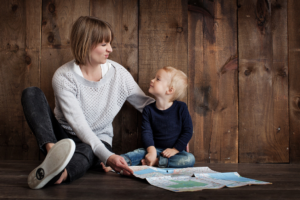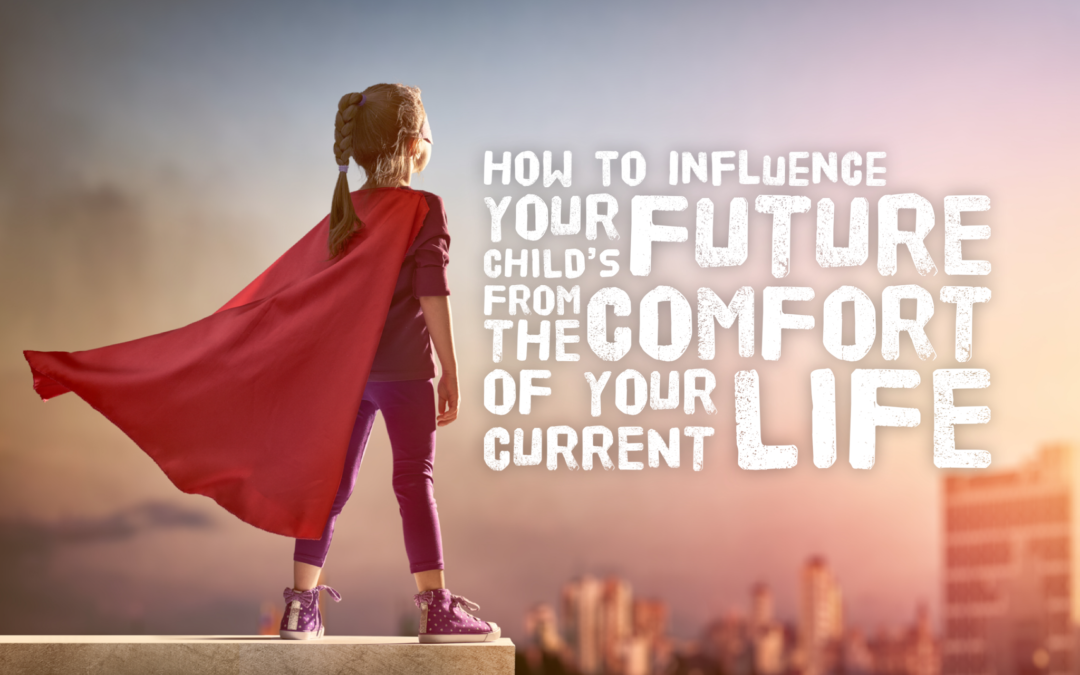When my husband’s nephew was born, he naturally wanted to spend a good deal of time with this new little one, which meant I was also spending a lot of time with him. Initially I was all about it, because I love babies! But I was also 20-something and enjoying all that life brings during that time. So when my husband started to make our visits with his nephew into a weekly thing, I started to feel a bit frustrated. The grandiose lifestyle of the average 20 year old is fairly incompatible with the world of babies, and so it was cramping my style!
But I wanted to spend time with my then-boyfriend, so I kept joining him in the baby care. We went on little outings together, we played endless amounts of peek-a-boo, and we learned about all those specific little habits that only people who know you well get to learn.

And then something strange happened. One week my boyfriend said we wouldn’t be able to see his nephew at all that weekend. And I was disappointed. Wait, what?! Where did that feeling come from?! How did I go from feeling frustrated that we were seeing too much of his nephew, to disappointed that we weren’t seeing him enough?
The answer is attachment. That invisible, ever-powerful dynamic that keeps us coming back to the ones we love. Attachment is the reason we turn toward our crying babies to soothe them, and it is the reason we put our own lives on hold in order to tend to their needs.
The Four Components of Attachment
Bonding is what most people think of when we hear the word “attachment,” and it refers to the connection we have between ourselves and our babies. For some people, this bond can happen while the baby is still in the womb, while others will feel the bond after seeing their baby for the first time, and there are others who will require time getting to know their baby before the bond really becomes established. All of these are completely normal!
Attunement occurs when we pay attention to what our babies are trying to communicate, through their cries, their facial expressions, and their body language. Attunement allows us to notice when they like or dislike something, and it helps us learn their cues for hunger and sleep. When we follow our baby’s lead, we convey a deep respect for them right from the beginning.

Responsiveness occurs when we use the information we gathered through our attunement to respond to our baby’s needs and desires. We are being responsive when we feed our baby when he is hungry, when we help our baby sleep when he is tired, and when we stop our play when he is overstimulated.
And finally, consistency, is about putting the pieces together to identify and respond to our babies needs regularly and predictably over time. It’s about teaching our babies that we are there for them and they can rely on us always. Of course, as parents we are still human, and there will be times where we don’t get it quite right. And that’s ok. Attachment isn’t about being perfect parents. It’s about being there for our kids enough of the time that we help them to feel safe and secure.
When you get it mostly right, your child will develop a secure attachment. And when something goes awry, they will develop an insecure attachment.
So why is this attachment thing so important, anyway? The short answer is because it affects ALMOST EVERYTHING! This is no understatement. The attachment relationship you build with your child starting at birth will go on to influence hugely important things like self-esteem, confidence, independence, behavior, discipline, morality, social relationships, and even expectations of the world around them.
Mental Models
The impact of attachment occurs through the creation of something called mental models. In the beginning, your baby doesn’t know anything about the world except what he experiences with you.
Your interactions with your baby teach him about himself. They help him answer questions like:
- Am I lovable?
- Am I a burden or am I valuable?
- Will I get through this difficult experience or will it consume me?
Your interactions will also teach your baby about others and what to expect out of relationships. He will learn the answers to questions such as:
- Can I trust other people?
- Can I count on others to be there when I need them?
- When I have a problem with someone can it be resolved? Or is conflict irreparable?
And your interactions with your baby will also teach him about the larger world around him. He will learn answers to questions such as:
- Is the world generally good or evil?
- Are most experiences positive or negative?
- Are dreams attainable?
- Does working hard result in success?
You can see how the way your child answers these questions will go on to influence so many things!
But before you feel like this article is telling you to be a perfect parent, let me stop you. Like I mentioned earlier, building a secure attachment is not about getting things exactly right. It’s about trying to meet your child’s needs, most of the time. It’s about being a good enough parent as opposed to a perfect parent.

Let me walk you through an example to see what I mean. Imagine there’s a 1 year old child named Leo. Every time Leo needs anything, he starts to cry because he doesn’t yet have verbal language. Instead of rushing to feed, change, or help him to sleep, Leo’s parents feel annoyed at the inconvenience and start to yell at him for crying. This happens multiple times a day, every day. Leo is left to feel ashamed of himself and his needs, unable to rely on anyone else for help, and he experiences his world as primarily angry. This dynamic is ripe for forming an insecure attachment that will impact Leo for the rest of his life.
Now let’s look instead at another 1 year old name Lyla. On most occasions when Lyla cries out, her parents come and offer her food, change her, or help her to sleep. Sometimes they can’t get to her immediately, but most times they can. And there’s been a few times, when having a bad day, that her parents have become frustrated and spoke harshly to her. But whenever that’s happened, after her parents have had time to cool down, they always come back and give her extra hugs and cuddles and apologize for speaking to her that way. It makes Lyla feel loved and cared for. And she knows that her parents’ are going to meet most of her needs, or at least try. And she’s come to experience the world as quite lovely. As a result she’s got a strong foundation for developing a secure attachment.
Can you see how vastly different Leo’s experiences are from Lyla? Most of the things that parents hope to instill in their children don’t come from “teaching,” but instead just from experiencing life with us.
So all you busy parents out there, stop worrying about fitting in all of those lessons with your little ones. You don’t have to teach your child to be independent, and you don’t need to teach them to be confident. They will learn this just from being with you as loving parents! So relax, put your electronics down, and just spend some time with your child. The rest will follow!
____
Dana Basu, PsyD is a licensed clinical psychologist at EverGROW therapy and founder of Everything But Crazy, an online resource for parents. She provides individual therapy, support groups, and online resources for parents in Orange County and throughout the state of California via online therapy. She specializes in working with the highly sensitive person and people with difficult childhood experiences, trauma, parenting stress, and chronic guilt.


